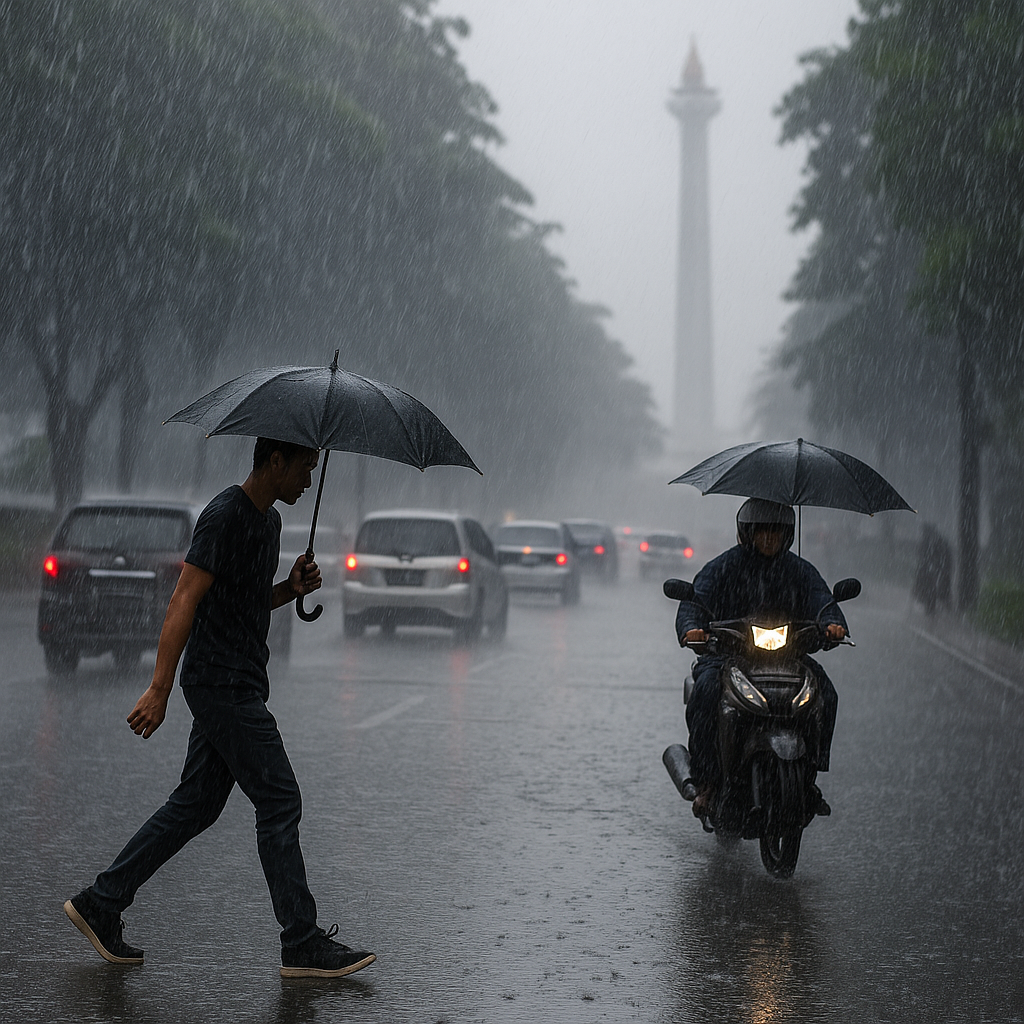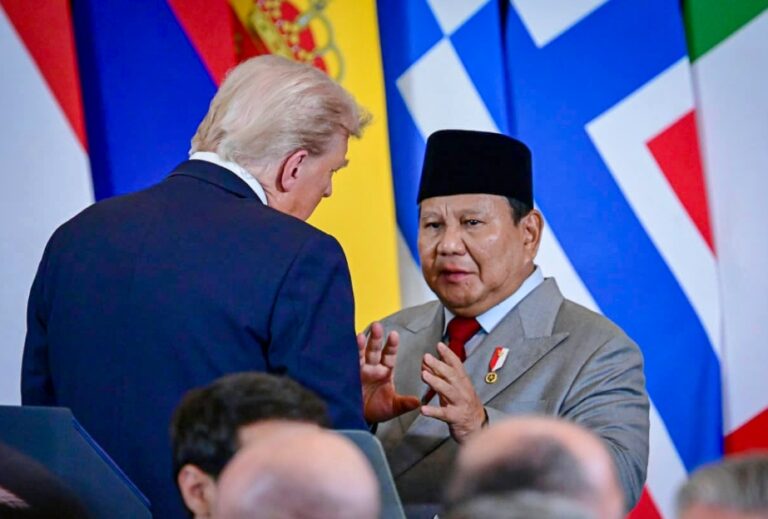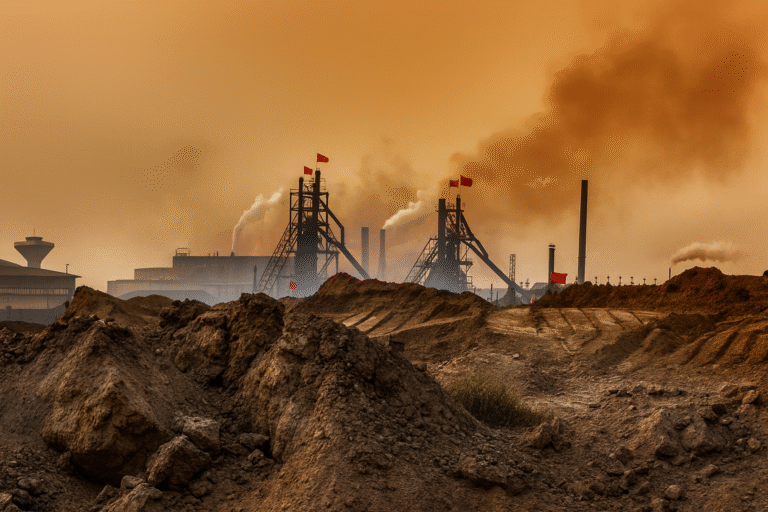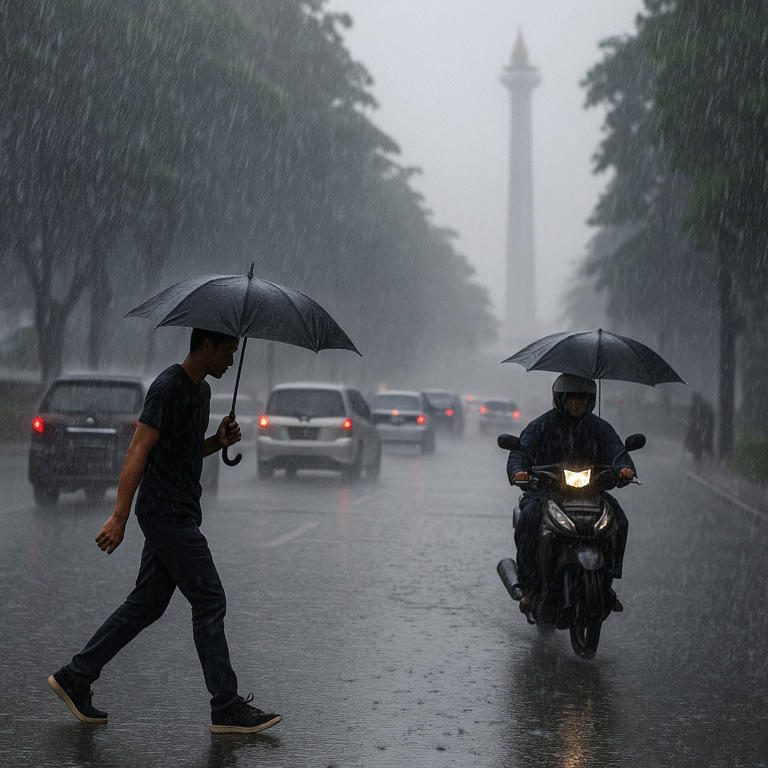
It’s raining plastic in the capital. A new study by Indonesia’s National Research and Innovation Agency (BRIN) has confirmed the presence of microplastics in Jakarta rain, linking air pollution, poor waste habits, and human health in one unsettling chain.
BRIN researchers led by Muhammad Reza Cordova found that every rain sample collected across Jakarta since 2022 contained synthetic particles (polyester, nylon, polyethylene, polypropylene, and polybutadiene) coming from clothing fibers, tire dust, and burned or broken-down plastics. Coastal samples showed around 15 microplastic particles per square meter each day. The team explained that airborne fragments rise through the atmosphere and fall again with the rain, mixing into rivers and food chains.
Government and Scientists React to Microplastics in Jakarta Rain
Jakarta’s Environmental Service called the discovery a “wake-up call.” Its head, Asep Kuswanto, warned that “plastic pollution does not end in rivers or seas; it has reached Jakarta’s sky.” The city has added rainwater monitoring to its Jakarta Environmental Data Integration (JEDI) system and strengthened its campaign “Jakarta Without Plastic in Air and Land.” New measures push reusable shopping bags, waste sorting, and community recycling.
BRIN scientists caution that while the rain itself isn’t toxic, the plastics it carries can release harmful chemicals or trap pollutants. Global studies show microplastics may cause oxidative stress and hormonal imbalance. Cordova urged people to avoid burning trash and reduce plastic use, saying, “Jakarta’s sky reflects the behavior of humans below it.”
The Bigger Picture: Plastic Pollution and Lifestyle Change
The presence of microplastics in Jakarta rain shows how deep plastic waste has seeped into modern life. Indonesia produces about 12 million tons of plastic waste each year, yet only a small share is recycled. Much of it comes from daily routines: plastic bags, synthetic clothes, or microbead cosmetics. Officials say the real solution begins with lifestyle changes: carrying reusable bags, refilling containers, and avoiding excessive packaging.
Indonesia has also taken the issue abroad, joining talks under the United Nations Environment Assembly (UNEA) and the Intergovernmental Negotiation Committee (INC) for a global plastic treaty. The government seeks a balance between protecting health and maintaining economic needs.
Jakarta’s rain now carries a quiet warning. The pollution falling from above is a reflection of choices made below, and those choices can still be changed.




